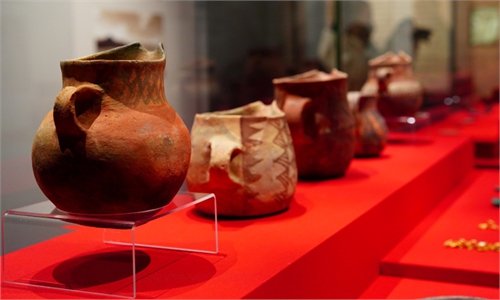This is an era filled with vitality and hope, where every landscape tells a different story, and every city reveals its unique charm. It is these diverse aspects that come together to form the grand tapestry of China. The Global Times is launching an "Impressions of the New Era" column, which is dedicated to showcasing the unique development and changes across the nation through a series of vivid and emotionally rich pictures. From the majestic mountains and rivers of the north to the hustling and bustling cities of the south, from the fishing villages along the eastern coast to the remote townships in the far west, this column hopes to take our readers to different places to explore their unique allure. We will capture the characteristics of each place through our lenses, whether it's the vitality of technological innovation, the inheritance of traditional culture, or the changes in people's lifestyles. It is not only a presentation of China's diverse regional landscapes, but also a fresh record of the nation's great transformation in the New Era.
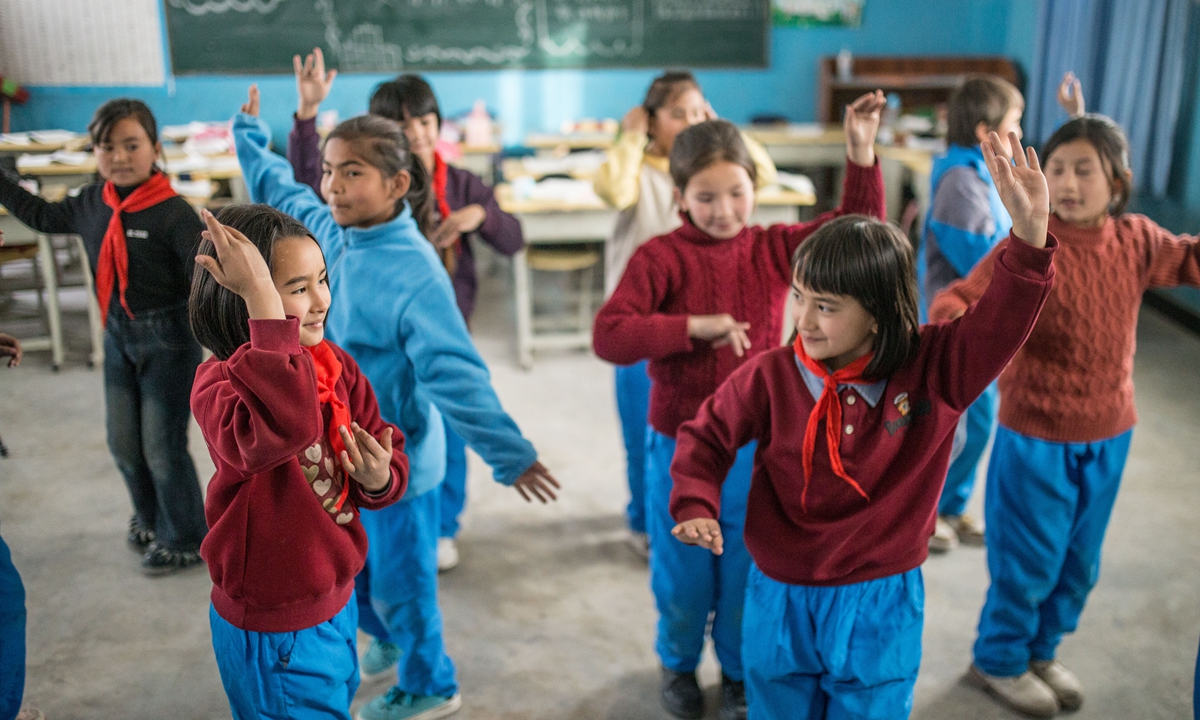
Students dance with traditional Uygur music during an after-class activity in Daliyabuyi village of Yutian, Northwest China's Xinjiang Uygur Autonomous Region on February 28, 2024. Photo: Shan Jie/GT
Life today is not what the people of Daliyabuyi village could have imagined a few years ago.Daliyabuyi is one of the most special villages in Yutian county, Hotan, Northwest China's Xinjiang Uygur Autonomous Region. The village used to be a lone island in the heart of the Taklimakan Desert, where people had been living a forgotten life for centuries.
Daliyabuyi, meaning "Along the River" in Uygur, is named after the Keriya River, which signifies "drifting." The river originates from the Kunlun Mountains, while Daliyabuyi is located at an oasis at its end.
In 1895, the ancient history hidden deep in the desert and the ancient civilization by the Keriya River were discovered by the Swedish explorer Sven Hedin.
There are no records of the origins of the people of Daliyabuyi. Some believe their ancestors chose a life of isolation to avoid war; others say they were indigenous desert dwellers; they are also considered descendants of the famous ancient Loulan Kingdom.
Regardless, Daliyabuyi stands alone in the desert. It is surrounded by an uninhabited desert area of more than 200 kilometers in size. In the past, it took 20 days riding a donkey for villagers to trade in the county town of Yutian.
Even in recent decades, it took two days by pickup truck to reach the county, recalled Kuerbanhan Maitirouzi, a native of Daliyabuyi. "When I was young, we could not eat vegetables or fruit regularly, only on the rare occasions when supplies arrived, could we have pilaf with carrots."
Since 2017, with the organization and help of the regional government, the village of Daliyabuyi began to relocate entirely.
Today, the newly established Daliyabuyi Township is located an hour's drive from Yutian. Over 360 households, totaling 1,400 villagers, have moved into small newly built houses.
The home of Bulakehan Maitikasimu is clean and tidy, adorned with beautiful wallpaper and bouquets. Now, her home has running water, electricity, its own toilet and kitchen, underfloor heating, a television, and wifi, the Global Times reporters saw.
Her nephew and niece attend the local primary school. The village's health clinic has four doctors, providing basic medical care to the villagers at any time. The village's small store lights up at night, selling a variety of snacks and fruit.
The old village has also been preserved. Besides some villagers grazing sheep there, tourism has started to develop.
"This is a life I could not have imagined as a child," said Kuerbanhan, the first college student in the village. "Sometimes I feel like a 70-year-old woman because a century's worth of change has been witnessed by a young person in her 20s."
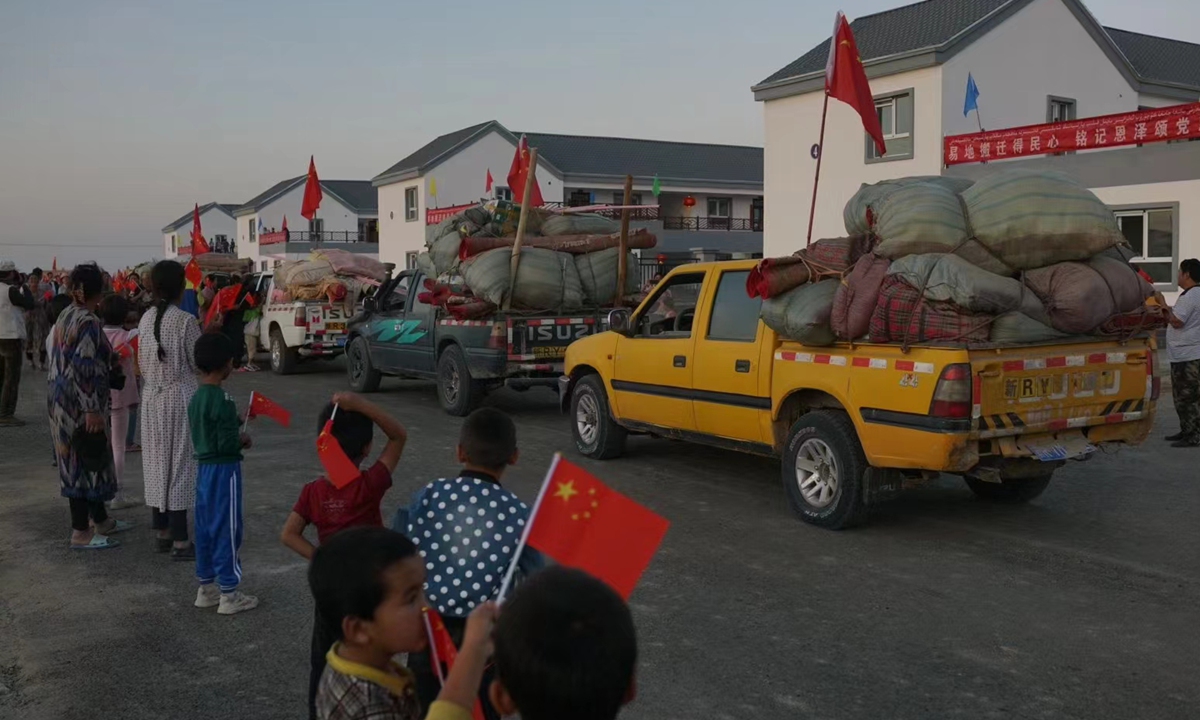
Villagers move into the new Daliyabuyi village, which is much closer to the county town of Yutian, Northwest China's Xinjiang Uygur Autonomous Region in August 2019. Photo: Courtesy of Daliyabuyi township government
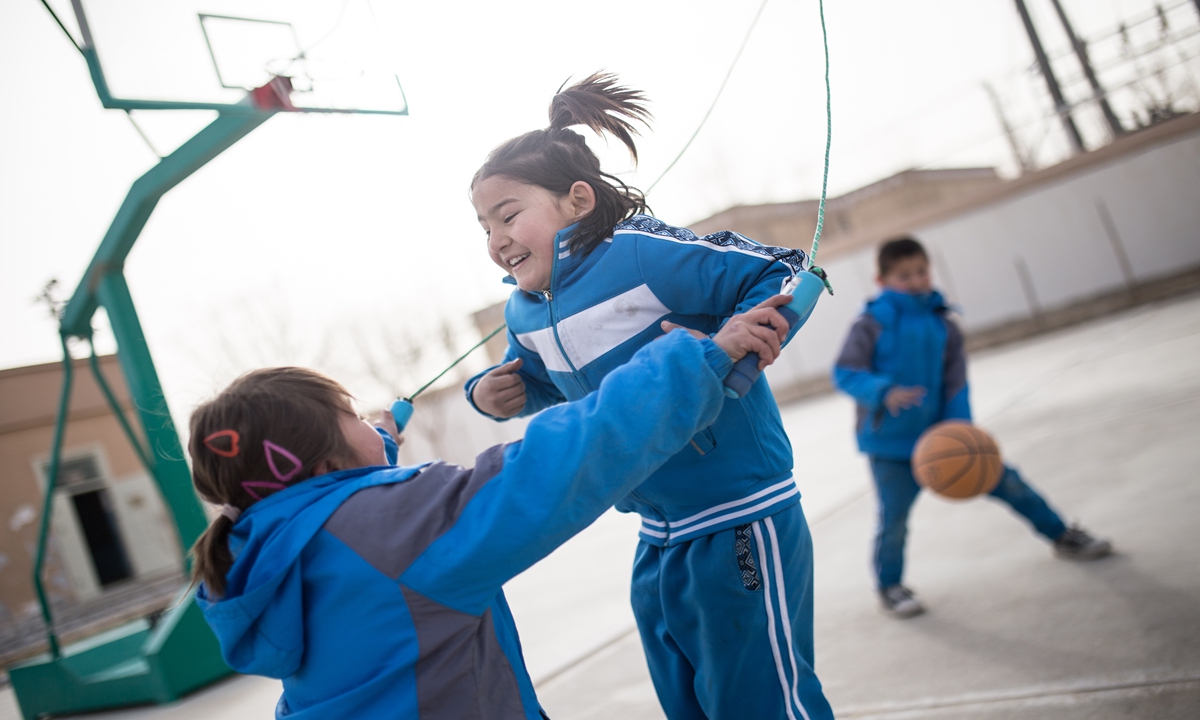
Students play on the playground after school in Daliyabuyi village of Yutian, Northwest China's Xinjiang Uygur Autonomous Reguon on February 28, 2024. Photo: Shan Jie/GT

A doctor checks medicine in the pharmacy of Daliyabuyi's clinic on February 28, 2024. Photo: Shan Jie/GT
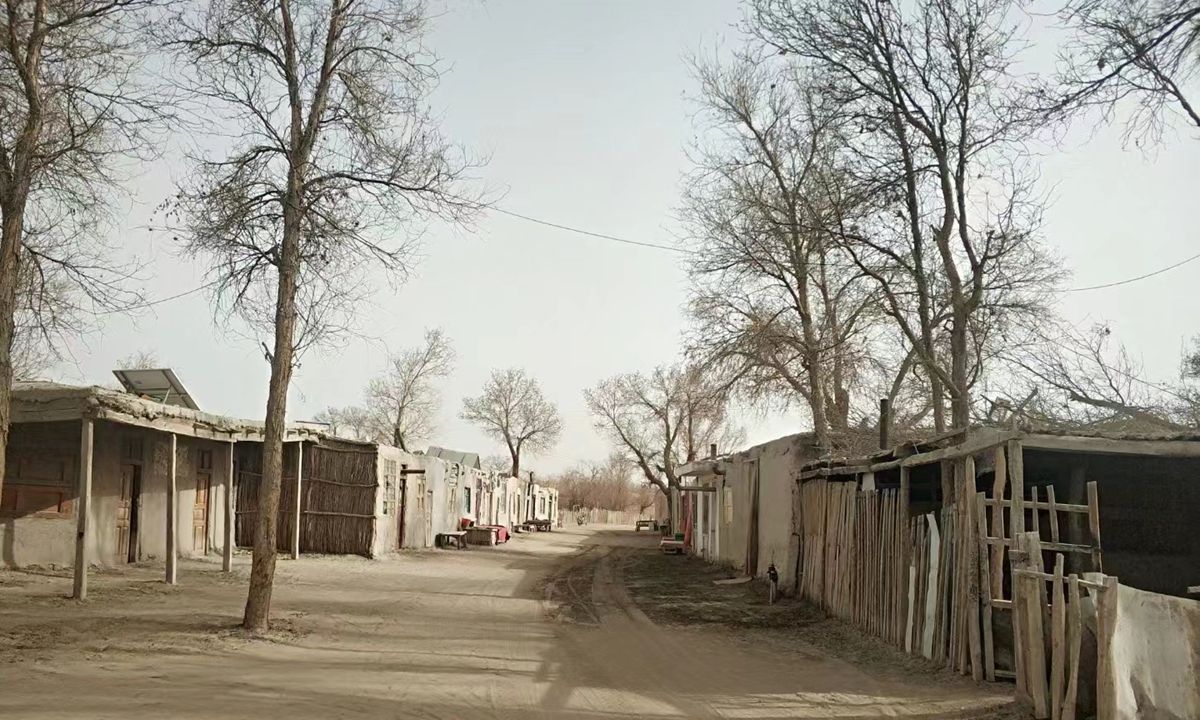
An archive photo of the old Daliyabuyi village deep in the desert Photo: Courtesy of the Daliyabuyi township government
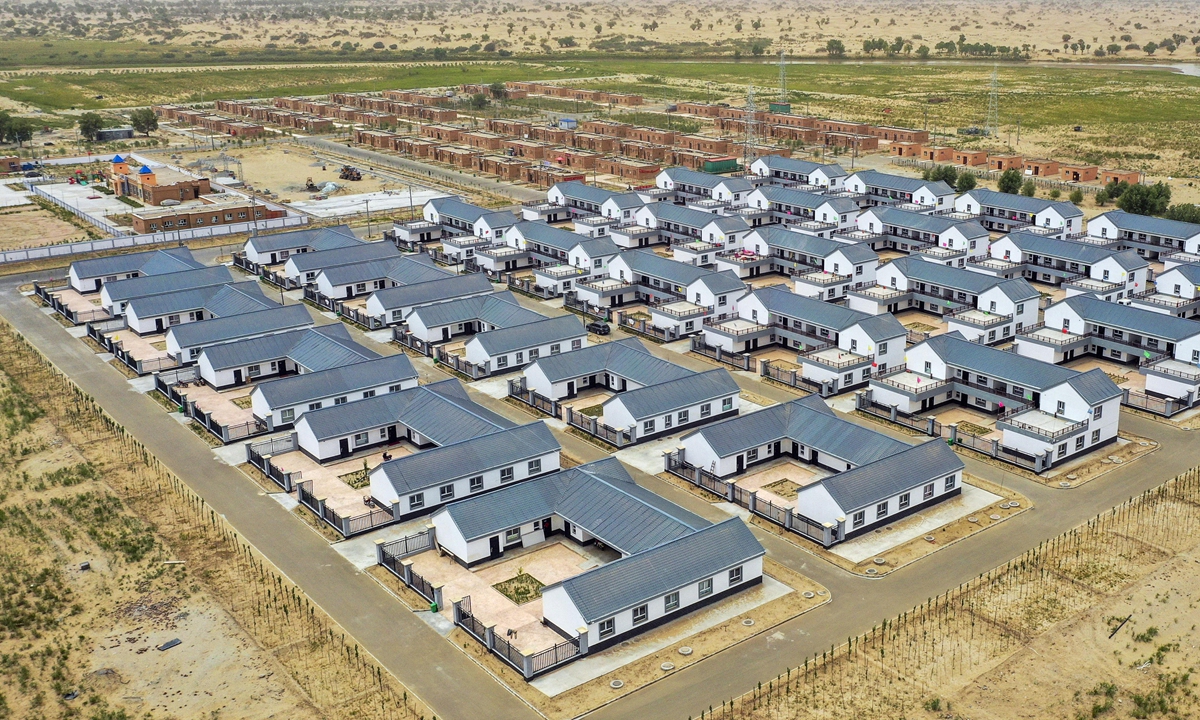
A bird-view of the new Daliyabuyi village Photo: VCG

